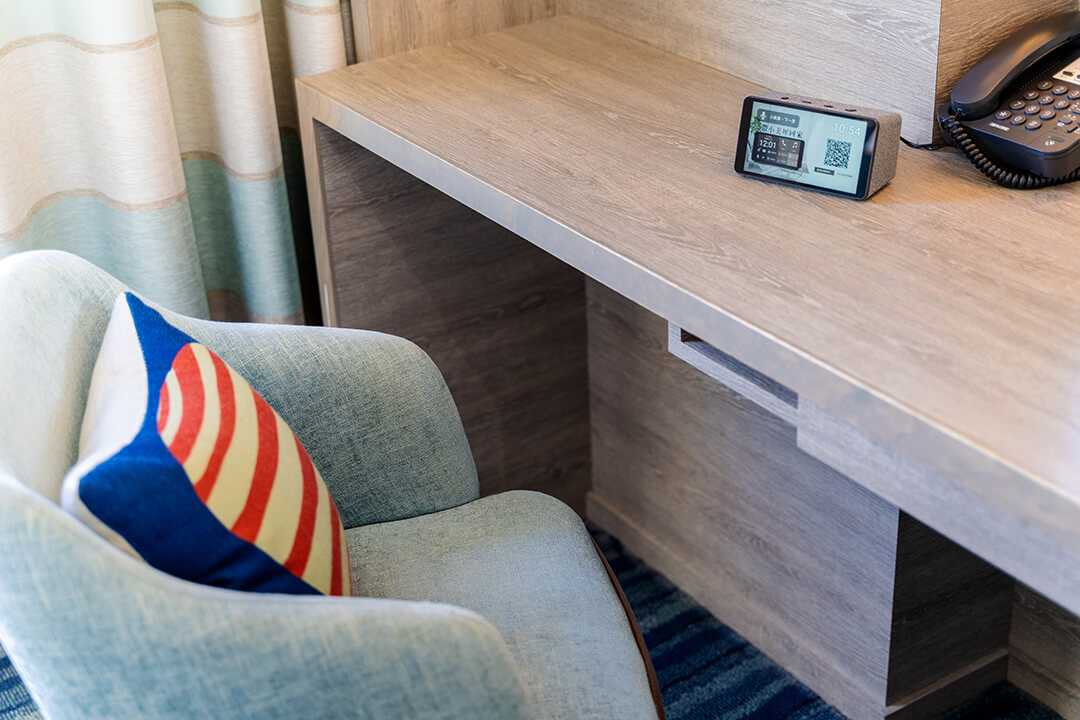
Key Focus:
Due to the pandemic, the number of inbound international tourists from January to September 2021 has decreased by 20% compared to 2020. However, it is still 76% lower than before the outbreak in 2019, when all aspects of the tourism and hotel industry have completely changed. When there is a substantial change in consumer behavior in the hotel market, the accommodation industry needs to readjust and optimize services according to the new demands of the guests. Many hoteliers are also facing problems with human resources such as staff shortages, lack of automation in the processes and long staff training time.
These reasons have dramatically increased the speed of digital transformation in the industry, which has become one of the main strategies the hospitality industry has focused on in recent years.
What is Digital Transformation?
"Digital transformation" does not just refer to a new technology or digital technology, but a series of processes covering the overall companies' business thinking, technical departments and applications. Through transformation, hoteliers can not only improve internal work efficiency, but also address manpower shortages effectively and manage them better.
To put it simply, the use of new technologies, such as the digitalization of paper materials and the introduction of new business systems, even a voice assistant in the room or a fully automatic prevention and control system, all belong to the category of digital transformation. In a broad sense, reforming the organizational culture within the enterprise, or launching new business models in the market are also part of the digital transformation.
Why is Digital Transformation Important in the Hospitality Industry?
Hotel employees need to take care of on-site work and master multiple online room reservation platforms at the same time. In addition, because of the instability caused by the pandemic, hotels have to learn how to work with limited human resources since finding staff with sufficient experience in the accommodation industry has been increasingly difficult.
Through digital transformation, hotels can manage prices, inventory, and orders for each channel in a unified manner and transfer orders directly to the hotel's front desk system. This way, they can minimize operation time and workload, which allows management to better allocate the existing human resources.
In terms of employee operation management, the purpose of digitalization is to optimize daily operations and automate tedious tasks like housekeeping requests or room services with fewer resources and give staff more time to focus on customer service requests that require special attention.

Benefits of Digital Transformation
1. Enhanced Data Collection
Hotel staff interacts with a great number of customers on daily basis, and manually accumulates vast amounts of data about them, but the real advantage comes with analyzing that data to drive business growth. Data-driven digital transformation introduces mechanisms for capturing the right data and fully integrating it for higher levels of business insight powered by artificial intelligence (AI).
It establishes a method for various functions in the hospitality industry to convert raw data into insights across multiple touchpoints. As such, it establishes a single view of customer experience, operations, production, financial and business possibilities. Having the ability to capture and analyze customer interactions helps hoteliers better understand customer behavior and further optimize and develop the next line of products and services that are targeting exclusively a specific type of guests.
2. Minimize Printed Materials in the Guest Room
With the help of digital signage, hotels can now completely digitalize all printed materials inside the room. For example, in the past, the hotel provided a guest room guidebook for each guest room. A digital guidebook becomes an in-room, holiday assistant for the guests, where the staff can quickly upload the latest marketing materials on the digital signage products of their choice and reach the guests immediately. There is no need to reprint the physical manuals, which greatly reduces the amount of paper materials in the room, not to mention the printing costs.
Apart from the in-room guide, the digital signage allows staff to send instant notifications and messages to the guests to inform them about offers and deals they should not miss.
With this approach, hotels can save up to 35,000 sheets of paper a year.
Not only that. There are hotel tech solutions on the market that combine the above-mentioned digital signage with a voice assistant.
The extent of services and functions is much larger. Other than holiday tips, such solutions allow voice-based room environment controls functions such as adjusting lights, air-conditioning, or automating room service.
3. Full Use of Human Resources
The process of delivering value and providing services in a hotel already begins with customers booking a room, followed by booking confirmation and pre-stay communication. Front desk staff begins serving the guests on the day they check-in. They continue using dining, recreation and leisure facilities in the hotel that are all part of the overall impression the hotel to guest interaction. The interaction between hotels and guests doesn’t always stop at the check out but it sometimes extends post-stay with special offers and further marketing materials sent to the customer’s inbox.
While handling the above-mentioned services, the biggest headaches for the hotel teams are inefficient workflows and overcrowded phone line, which leads to frustration for both guests and the staff. The queries coming from customers on the other end of the line involve different products, discounts, or whether they need an extra bed, want to order breakfast or dinner.
Managing a large amount of information at once not only takes up a lot of time for the front desk staff, but also adds lots of stress and pressure, which often results in errors like misreporting prices and customer complaints. Digitalizing data and storing it on the cloud will make it easier for hotels to manage and organize information, save resources at the front desk, and allow the management to better allocate the resources who can now focus on true hospitality and personalized services.

Picking the Right Solution for Your Business Needs
If you want to kickstart digital transformation at your hotel, better manage your talent and create a more personalized experience for your guests, explore solutions based on AI technology that help your hotel with digital transformation from the ground up.
At Aiello, we specialize in voice AI technology for hotels. Voice AI benefits hotels by automating daily operations, gathering insights about guest preferences based on the interactions and offering round-the-clock in-room assistance for the guests.
Guests know how to control the voice assistant naturally. Through voice commands, they get answers to FAQ, information about their stay, events and special offers, or they can order room service, which greatly reduces the workload and collects data about customer preferences. At the same time, the management team can grasp this data, learn about customer needs and provide the most suitable services.
If you want to dive deeper into conversational AI solutions and learn how they help hotels, get in touch with our expert team and we'll get back to you within 2 working days.
Book a Demo
Do you want to learn more about what we’re building? Contact us to schedule a demo.








